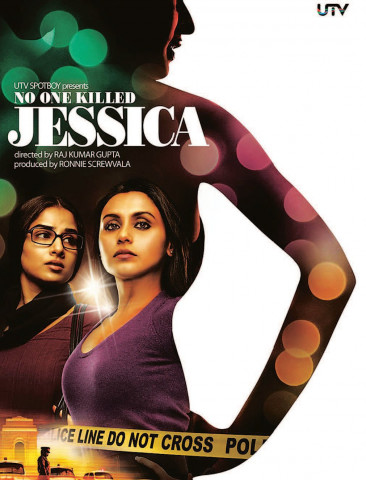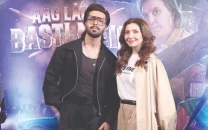Jury, justice, and Jessica
Looking to watch a typical Indian movie? Then it’s better to give No One Killed Jessica a miss.

You won’t find your usual Romeo here who, in true Bollywood fashion, falls in love with a pretty girl, struggles to make her accept his love and then, after winning her heart, enjoys the dances she performs in his honour. Oh, and along the way hew also fights his parents, society, a gang or two of goons and the local small businessmen’s association.
No One Killed Jessica is an exceptional venture which will impress audiences who are fed-up with watching decades of melodramas, orthodox romances and run-of-the-mill Eastern tragedies soaked in morbid sentimentalism. The film is based on a true story and in this case, the director did not have to pad the script out with artificial thrills, mock fights and exaggerated emotions. He decided to present the highly publicised murder case of an Indian model very simply, which is why No One Killed Jessica works.
The story goes something like this: A relatively low profile but vivacious Delhi-based model, Jessica Lall, who was serving as a celebrity barmaid at a crammed party was shot dead on April 29, 1999 after she refused to give her murderer a drink after closing time. Scores of people at the bar witnessed Manu Sharma, son of Venod Sharma, a cabinet minister in Haryana, committing the crime and fleeing from the scene. However, because of the killer’s influential background, Sharma and a number of others were acquitted on February 21, 2006.
Following intense public pressure, the prosecution appealed and the Delhi High Court conducted proceedings on a fast track with daily hearings taking place over 25 days. The lower court judgment was found faulty and Manu Sharma was found guilty of having murdered Jessica Lall. He was sentenced to life imprisonment on December 20, 2006.
Credit has to be given to director Raj Kumar Gupta for dramatising this story using real names, places, locations and incidents. He hasn’t sacrificed facts at the altar of filmmaking, which is commendable.
As far as the actors are concerned, Rani Mukherjee, once again, has proved that she is one of the most versatile and talented actors that Bollywood can boast of. Mukherjee plays Meera, the sassy journalist who jolts Indian society out of its sated slumber by doggedly pursuing the story. She is at once flirtatious, sensitive, a tomboy and a brave leader. Vidiya Balan, who plays Jessica’s sister Sabrina, pulls off playing a grave and grieving sibling so well you can’t help but get wrapped up in the story from the start.
Though the movie’s theme doesn’t leave much room for levity, the music composed by award winner Amit Trivedi is really an additional jewel in the film’s crown. The cutting-edge, out-of-the-box tracks are definitely worth a listen, especially “Dilli,” which will give you goose bumps. The film features six tracks, all written by Amitabh Bhattacharya.
All in all, No One Killed Jessica is memorable because it strips the usual glitz and glamour of upper class Indian society away and shows you the seedier side of the celebrity scene. And scandal, of course, is always in vogue.
Published in The Express Tribune, Sunday Magazine, January 23rd, 2011.



















COMMENTS
Comments are moderated and generally will be posted if they are on-topic and not abusive.
For more information, please see our Comments FAQ